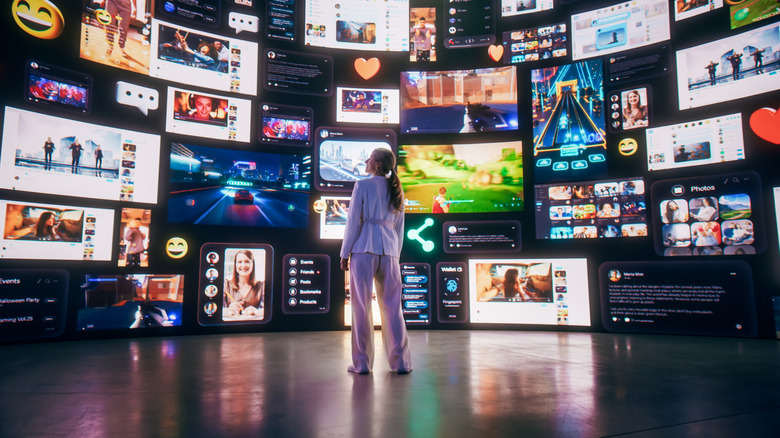AT&T Vs. Verizon: Which Company Offers A Cheaper Rate?
The wireless market in the U.S is a booming industry. It's filled with several listings of telecommunication providers, but AT&T and Verizon stand out from the crowd as front-runners. While both giants offer the same essentials to customers — unlimited talk, text, and data — their prices and special features set them apart. So, if you're trying to choose, it's all about what matters most to you; cost, reliability, data plans, and those extra perks.
AT&T grabs attention with its vast 5G network and a buffet of plan options. If you're hunting for a steal, check out the comapny's Value Plus plan for $50.99 a month — it's often hailed as their top deal. This plan could fit your budget while meeting your essentials online communication needs. A quick heads-up, though. This plan does not include hotspot data, and you might notice slower speeds when the network gets crowded. Verizon, however, has extensive coverage and is praised for the strength of its network.
Sure, its plans might be a tad pricier, but their rep for reliable service keeps them in the game. Verizon caters to everyone with a variety of cell phone plans, from budget-friendly options to premium packages. This article will give you the details of what Verizon and AT&T offer. It will help you figure out which provider meets your needs best or leave you asking how much should you really pay for high-speed internet.
Data plans and additional benefits
Verizon stays competitive with the $65 Unlimited Welcome plan, offering a sweet deal for those flying solo on their phone plans. This plan comes in a notch cheaper than AT&T's basic $65 Unlimited Starter plan, which can actually bump up to $66 with extra taxes depending on where you live. The plot thickens with the pricier plans. AT&T's top-tier Unlimited Premium will set you back $85 a line, but Verizon's Unlimited Plus undercuts it by five bucks at $80. For those who stream or chew through data like popcorn, AT&T might still catch your eye. It throws in HBO Max with their plan and promise no data caps. Verizon, however, puts a cap on the fun at 50GB — after that, you're surfing at slower speeds.
Hotspot lovers, take note: AT&T offers 60GB of hotspot data compared to Verizon's 30GB. Once you hit those limits, expect to slow down to a crawl (we're talking 128Kbps) till your next billing cycle kicks in. For perks, Verizon leads the pack by offering a whole year of Disney+, Hulu, and ESPN+. Not just that, the company gives their users 50GB of top-tier data and a hefty 30GB of hotspot data for HD quality binge-watching. But it's not all glitz — both providers have their quirks. Observe the terms when you subscribe for any plan; note its expiry date and renewal timeline. A better strategy can be learning these simple tricks to save serious money on your internet bills.
Cost analysis and consumer satisfaction
Verizon's pricing reflects its significant investment in maintaining superior network coverage, especially in rural areas, where it often outperforms competitors like AT&T. According to RootMetrics' H2 2020 U.S. State of the Mobile Union report, Verizon continues to lead in 4G LTE availability, covering 95.9% of the U.S. population. This is especially crucial in rural areas, where network performance can be more challenging. Verizon's expansive 4G network ensures better coverage in remote locations compared to AT&T, which covers 94.5% of the U.S. population.
Verizon consistently ranks higher in customer satisfaction surveys, largely due to its reliable network coverage and fewer reported service interruptions. According to Expert Beacon's assessments, Verizon's reputation for consistent call quality and data speeds remains unmatched. Conversely, AT&T has made strides in closing this gap, particularly with its rollout of improved 5G services.
For budget-conscious users or those living in urban areas with strong AT&T coverage, AT&T delivers better overall value. Its competitive pricing, strong data allowances, and appealing perks like HBO Max give it an edge. On the other hand, Verizon remains the go-to choice for users prioritizing network reliability, especially in remote areas, or those who value its exclusive perks like Disney+ and Apple Music. Ultimately, the "better deal" depends on individual priorities — whether cost, coverage, or bundled features drive the decision-making process. Follow these frugal tips for saving money without sacrificing your quality of life.


